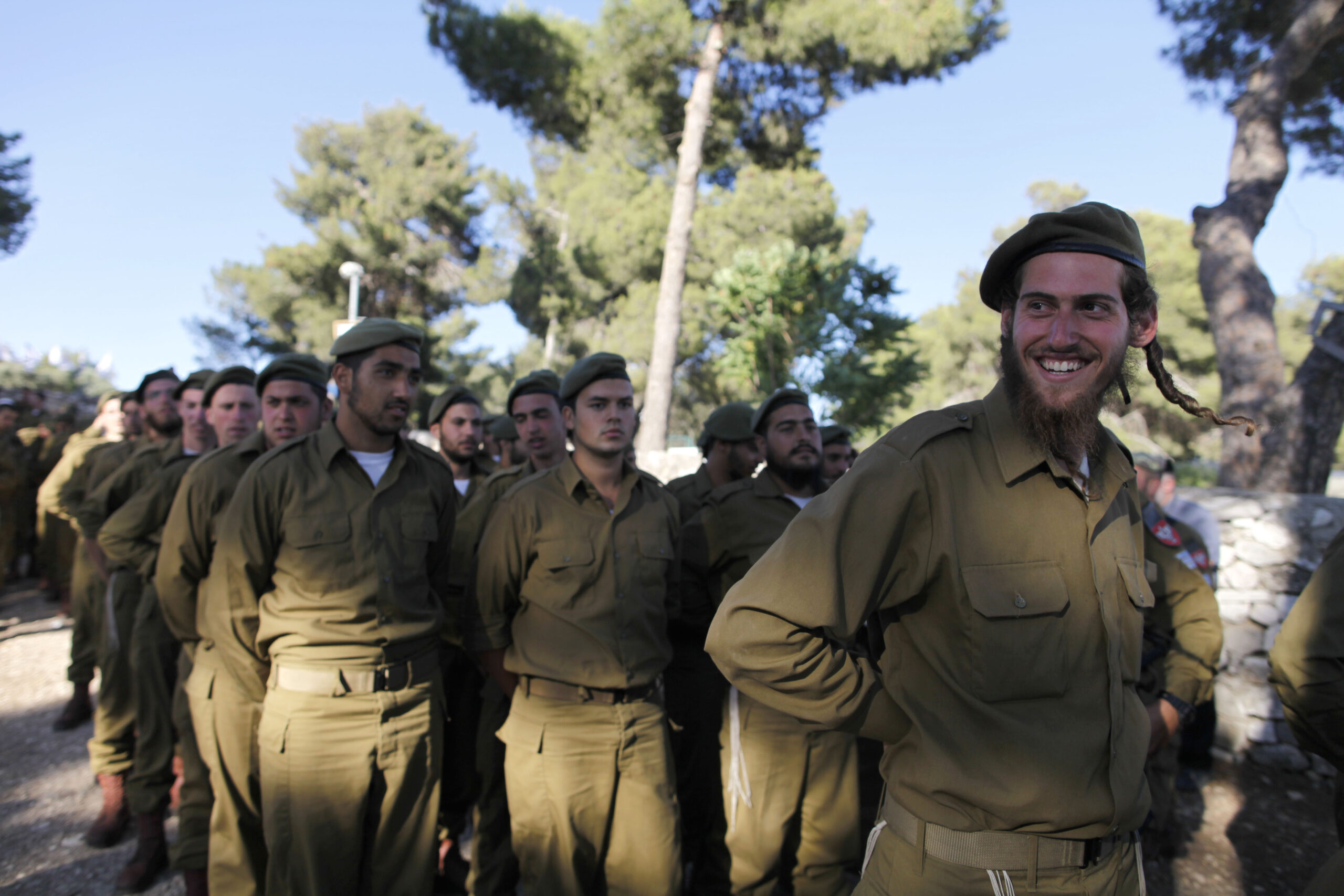This Week’s Guest: Yehoshua Pfeffer
Mandatory army service plays an essential function within Israeli civic culture, absorbing and equalizing Ashkenazi, Mizraḥi (Middle Eastern), religious, secular, male, female, Ethiopian, Russian, Druze and more. In the IDF, all of these identities step back and create room for a national Israeli identity to step forward.
Almost every Jewish community in Israel serves in the IDF, except one: the ḥaredi (ultra-Orthodox) community. Seventy years ago, Israel’s first prime minister, David Ben-Gurion, famously gave ḥaredi leaders an official exemption from compulsory national service, an exemption that persists to this day, along with much accompanying controversy. On this week’s podcast, the ḥaredi leader Yehoshua Pfeffer, himself a rabbinic judge, asks whether that exemption is just. In conversation with Mosaic’s editor Jonathan Silver, he explores the background behind the reluctance to serve, and brings us inside the debate currently unfolding within Israel’s Orthodox communities about the fulfillment of civic obligation and moral duty.
Musical selections are drawn from the Quintet for Clarinet and Strings, op. 31a, composed by Paul Ben-Haim and performed by the ARC Ensemble.
Excerpt (27:57-29:30):
The melting pot idea of the army didn’t just evaporate into nothing. It morphed and changed, it evolved over the years, but the army still remains very much a melting pot, it still has an educational corps, it still has a vision. That vision has shifted over the years, and now it includes a certain gendered vision, it includes a whole plethora of other aspects, but once again, the ḥaredi society that prides itself on its isolationism, that prides itself on being an educational system that’s not exposed to all of these trends and ideas, has a lot of trouble in going into the IDF.
Perhaps the final consideration, which might be the main one, is this ambivalence towards engagement with the state of Israel. The state of Israel is still a secular state. For Ḥaredim, this is an unbelievable trauma. Perhaps we don’t think about this every day when we wake up, but ultimately the success of secular Zionism in establishing the Jewish state is a real trauma in the ḥaredi mind, because pre-state, one of the principle arguments against Zionism was that it’s never going to work. How can it possibly work, that a bunch of secular Jews will establish the Jewish sovereignty, the political representation of the Jews? But hey, they did, it worked, it was successful. Not just was it successful, but it has long term stability, it’s there. And to be engaged in the IDF is to be a part of the state in the deepest possible way. It’s to be together, it’s to say “we’re a part of this.” I think it’s a step that ḥaredi society needs to go towards for its own sake and for the sake of Israel, but it’s a tough step.
More about: Haredim, IDF, Israel, Ultra-Orthodox







